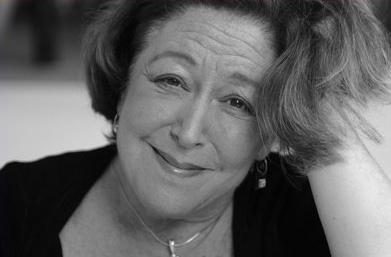
Judy and I stood stage right , in the dusty nook between the Stage Manager’s desk and the front curtain, watching the understudy perform the top of Act Two. The bright lights of the stage contrasted warmly with the close backstage darkness , yet, though we were shielded by curtains and the proscenium, we felt as one with the audience, whose faces we could also see shining upward.
They seemed enraptured.
“But she just isn’t the real deal, is she?” Judy murmured with, expecting me to agree with her.
“Well, c’mon,really, no one is like Teresa, or could ever hope to be, but the people are getting the show they may not have paid for, but they’re enjoying nonetheless,” I countered.
“Sad, they don’t know what they’re missing,” Judy added.
Once again, our touchy, strong- as- Greek- marble- yet- delicate- as -only-opera– stars- can -be leading lady had called sick during intermission and was whisked off to her posh hotel suite in her limo, rather than the complete the show. Our company was divided: between those who hated her for being so unpredictable,
so infuriatingly delicate, and those who slavishly adored her no matter what shenanigans she pulled. And the shenanigans were plenty:
Teresa didn’t like the cut or style of a costume she was given to wear in a certain scene, designed by our award-winning designer, so she’d take a pair of her eyelash scissors and cut the ruffle from the bottom, protesting that her character was poor and would never have such a stylish frock; if a rehearsal was not going to her liking, she’d storm out of the room, go to the lower lobby and pout, where the producers would have to seek her out to soothe her by giving into her demands; she even threw a dressing room chair at our one of our many directors because he was arguing with the point of view on the character, “Rachel” , Teresa was striving to perfect. Teresa was indeed a handful.
And so, there we stood: Judy, our ingenue lead, and me, the sturdy character woman who played her “Aunt Ida”, disagreeing, because she stood in the latter camp, while I was firmly in the former. I believed, like all show business pros, one’s show must go on, no matter how you were feeling, and I had a few offstage vomit buckets in my career to prove I was as good as my belief. Judy, young and with ideals still intact believed that nothing could replace genuine brilliance, even if that gift was as delicately balanced on the edge of ego as Teresa’s was.
Judy’s attitude bordered on snobbery, as far as I was concerned.
I thought it was terrific how the well-rehearsed understudy, went on at the drop of a hat and sturdily drove our show home, during our 6-week tryout in Boston. I admired her for her strength of nerve and lovely voice. No match for Teresa’s it was true, but a beautiful, reliable soprano, nonetheless.
It was such a beleaguered out-of-town tryout period, with constant musical and script re-writes the company was expected to put in at a moment’s notice, that we were dangerously close to being divided by such matters as the Teresa vs: her understudy thing. A show company’s rage can take many forms, and loyalties were often tested.
The next night, Teresa was back, and I stood off right in that dusty observation spot, listening to how she sang and watching how she moved through the moment in the show I had been watching the day before.
And suddenly, I got it. I felt it in my body.
I looked out at the audience’s faces, and I saw tears gleaming. Teresa had opened their hearts.
There was that magical thing, that mixture of gift, heart, nerve, Spirit – call it what you will -that made a star a star, that separated the brilliant from even the very very good. Teresa embodied it. Understudies never do.
And in that moment, with tears streaming down my face, how could I not forgive her?
Can you ever really argue with a star?
